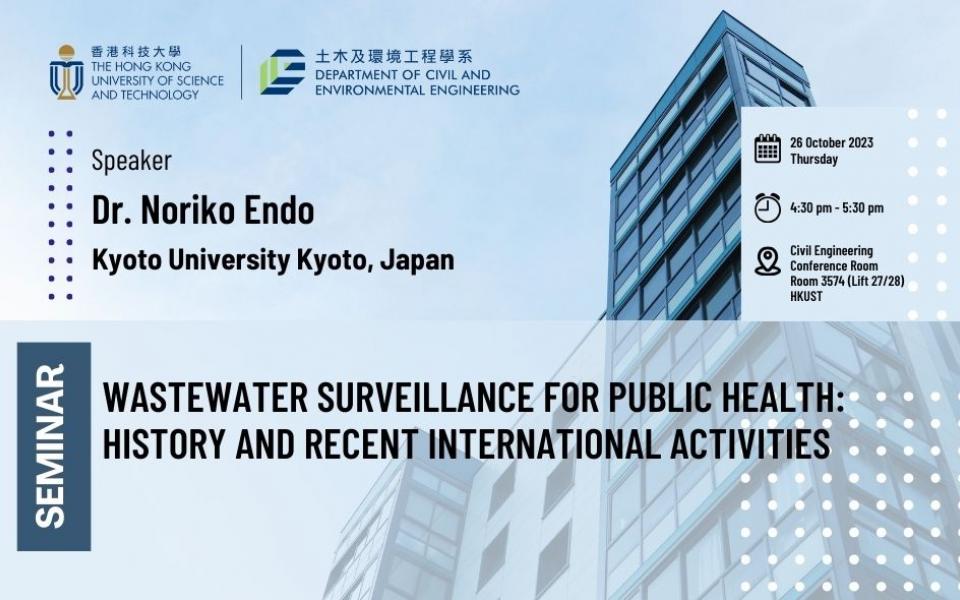Civil Engineering Departmental Seminar - Wastewater surveillance for public health: history and recent international activities
Supporting the below United Nations Sustainable Development Goals:支持以下聯合國可持續發展目標:支持以下联合国可持续发展目标:
Wastewater surveillance for public health: history and recent international activities
Wastewater surveillance has emerged as an effective tool for monitoring community spread of Covid-19 and other diseases during the Covid-19 pandemic. As a mixture of stools and urine from individuals with a connection to a sewer system, wastewater is an important, inexpensive, and equitable source of public health information. Since 2020, substantial international and interdisciplinary cooperation has advanced wastewater surveillance. Researchers around the world developed methods quickly and shared know-how extensively via an ad hoc Slack group or online webinars. Governments, academia, and industry worked together to implement and expand wastewater surveillance in many countries. There are even cross-governmental efforts to share the surveillance data. However, many challenges remain to achieve more global and integrated wastewater surveillance: expansion of detection targets, data integration with other public health data, and data ownership agreement to allow international data sharing.
Dr. Noriko Endo is an engineer who works at the cross-section of environmental engineering and public health. Over the past 6+ years, she has engaged in wastewater surveillance internationallyーin the US, Japan, and other countriesーand in multiple sectorsーindustry, government, and academia. She is currently invited as a researcher at Kyoto University, Japan. Previously, she worked as the first employee at a US-based startup company, Biobot Analytics, now a global leader of wastewater surveillance. Ph.D and M.Sci in Environmental Engineering, Massachusetts Institute of Technology. BA.Eng in Civil Engineering, University of Tokyo.
